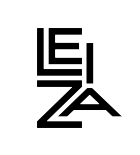War Discourse in the Times of Crisis: Authorial Strategies in Byzantine Historical Literature of the 14th century
In the 14th century Byzantium experienced multidimensional crisis. In addition to numerous conflicts with outer adversaries the Empire was shaken by diseases and civil wars. Despite the significant advances in Byzantine literary as well as military studies, the analysis of the war discourse as a part of the wider crisis context of the epoch based on close reading of texts is not an approach that has been applied to Late Byzantine literature so far.
I propose, therefore, to study the Byzantine military discourse of the 14th century. In particular, I plan on examining the abovementioned imagery and its development as presented in the texts of Nikephoros Gregoras and John Kantakouzenos as well as in rhetoric and hagiography of the period. My work will include case studies of the images of emperors, namely the images of Andronikos II, Andronikos III Palaiologos, and the imperial self-portrayal of Kantakouzenos, as well as military textual discourse surrounding these rulers. Among other things, I intend to focus on the authorial strategies Gregoras and Kantakouzenos used to portray the emperors during the times of war within the framework of their Histories.
I intend to conduct a close reading of the aforementioned body of important but understudied texts beginning with further research into the various versions of manuscripts and fragments of manuscripts. Anthony Kaldellis suggests that to study text closely on its own terms is the way towards deeper understanding of Byzantine history. I aim, therefore, to establish rules according to which every text functions. Once the researcher starts to read historical as well as rhetorical and hagiographical texts closely, a number of similarities but also differences in authors’ writing styles reveal themselves. The phenomenon can be explained if one were to look at the reasons behind the usage of every topos in the text. It is vital to understand what idea the author was trying to convene and how their usage differs from the other Byzantine authors. I believe that topoi, especially military ones, should be looked at without any limitations in scope not only as literary motifs with genre specific connotations but also as symbols in a wider social context. The study of the means the authors employed to talk about war in their texts can potentially contribute significantly to the understanding of how the Late Byzantines perceived the concepts of victory, defeat, death, peace, power and fate.
Betreuung:












